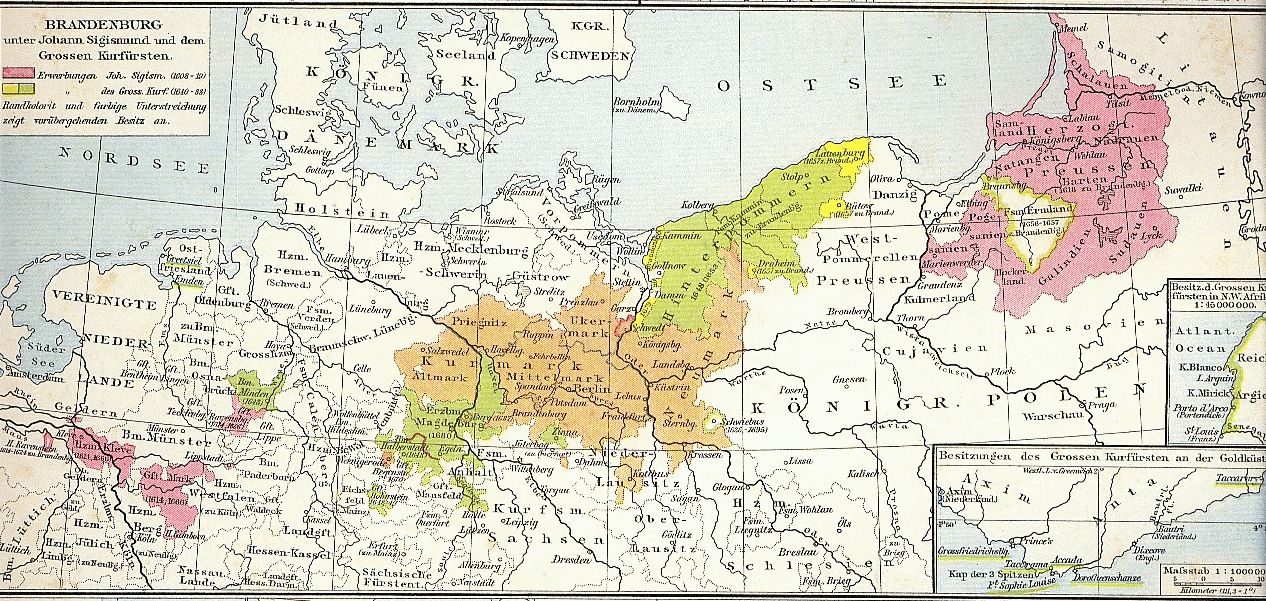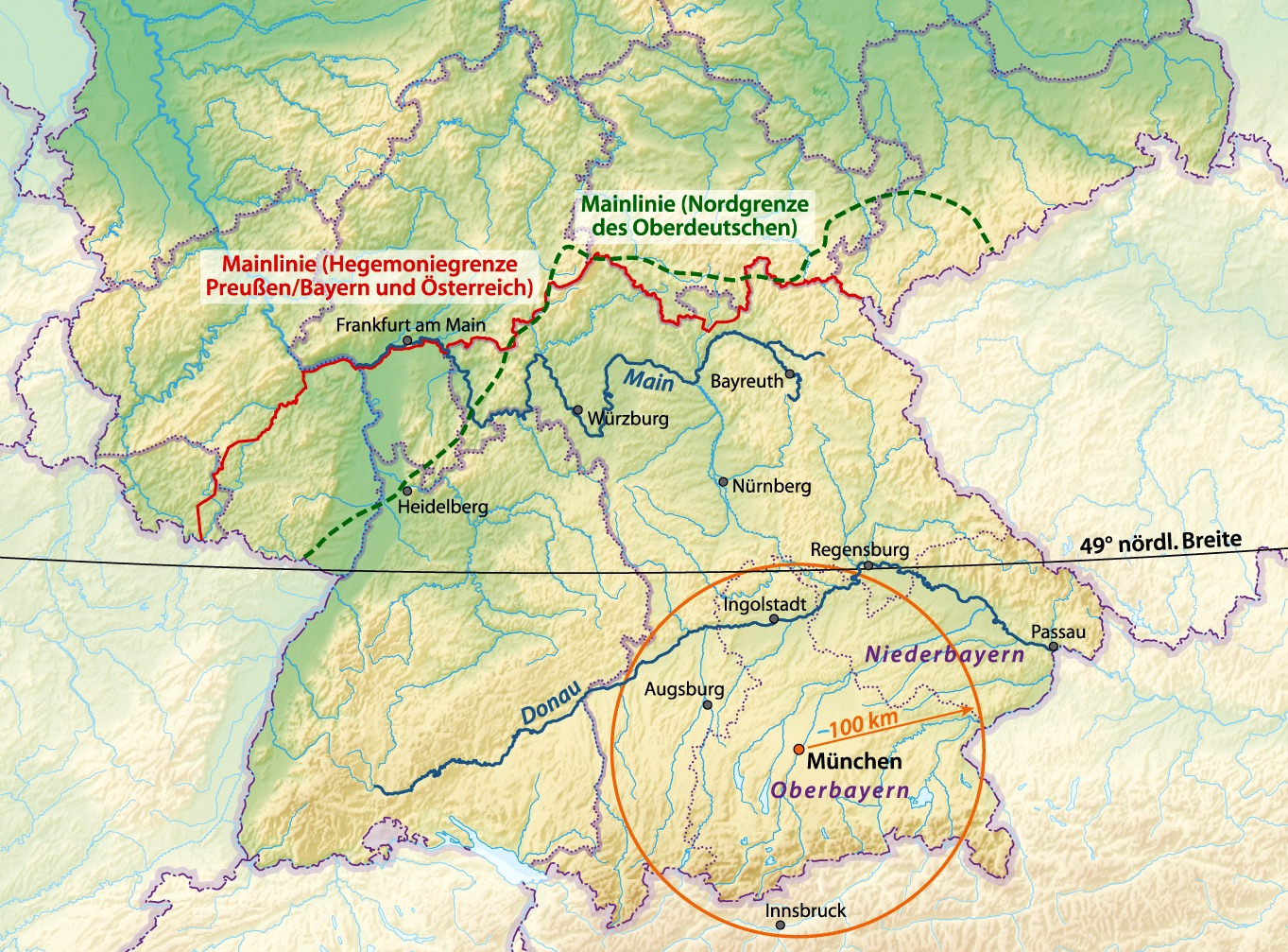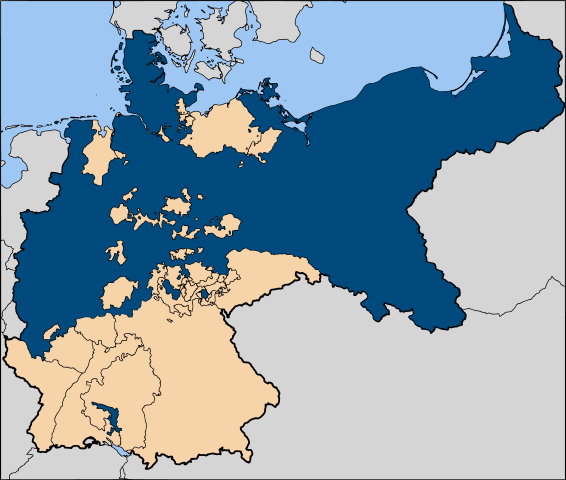The whole premise needs to be reversed.
The entire question is extraordinarily broad and potentially encompasses developments over 800 years and the entire globe.
What was Prussia, exactly, and what were "Prussians", and when did anyone call themselves "Prussian"? Those are the subquestions presented in the question body. But that is peripheral to explaining the quote in context. Let's address them anyway:
Quite a few non-German, non-Christian (Old-)Prussians ('Prusai or Pruzzen') gave the smallish territory on the Baltic their ethnic name. This was conquered by Teutonic Knights on a medieval crusade, came under control of different Germanic aristocrats who had to be loyal to the Polish Crown, then this duchy went to Brandenburg-based Hohenzollern dynasty. As self-identification of inhabitants of what was for a long time 'East-prussia' the word Preußen appears around 1400. They expanded their personal land-holdings and wrested away the loyalty to the Polish Crown and turned instead the Prussian territory outside of the Holy Roman Empire into a base to claim themselves King – not a 'German king' but 'King in Prussia'. Before 1701 then, absolutely no-one outside of Prussia proper would be called "Prussian".
Even in historiography it took quite a while that the Hohenzollern holdings were contracted to an anachronistic description of 'Brandenburg-Preußen' (which encompassed the main lands of the speckled colourings of the map. So the name migrated East for the polity boundaries.

For ethnic self-attribution things changed a lot slower. A Silesian stayed a Silesian under Prussian overlordship when Frederick conquered the place. This changed only a bit after nationalism took hold: Rhinelanders dissented with being annexed by Prussia, as did Northern-Saxons, but less so:


After Napoleon the polity of Prussia expanded ever more until it reached this extent:

But that still doesn't mean that everyone under Prussian control identified as Prussian. They could, that was now the state they lived in. That would be strongest among ruling elites, or in Berlin and Prussia proper ("East-Prussia") but would then decline rapidly when going anywhere else on the map or down the social strata.
People had a much more local identity throughout the entire 19th century. That doesn't rule out that they also would have had multiple identities. Not only could Silesians become 'good Prussians' in terms of administration, they could also switch tribal or ethnic self-identification as needed or depending on "who asks".
This is evidenced when after founding the empire Bismarck argues about his strategy for the Berlin Balkans Conference:
"of no interest for Germany, […] which would even be worth […] the healthy bones of a single Pomeranian musketeer".
And this continued well into the World War. After Napoleon inhabitants of newly acquired Prussian territories felt either their former locality as primary or 'being German', as it was no longer fashionable to become an ethnic Prussian. Politically this was again different and the elites assimilated still longer and stronger into 'Prussians'. But for a Prussian subject of for example the Rhineland "I am with the Prussians now" would just mean "I was drafted into the army".
For the former Kingdom of Hannover – annexed in 1866 – this was called "the time when the Prussians invaded", and led to people loyal to House Hannover resenting it hard enough to support a separatist party that supported and honoured George V. to the present day.
Yet, all this is not really helpful for explaining the confusion displayed in the question.
The book in question is not about anything 19th century or prior. The question title is really broad, but body has a focus that indicates that for a precise answer: we need to pose the question differently:
have a fictional book (made for German language learners) that takes place in inter-war Bavaria, there is someplace a joke about people arriving late, and their professor answer them:
Pünktlichkeit ist eine Preußische Tradition
(German for : Arrival on time is a Prussian tradition)
This particular quote really made me scratch my head because this book was only about Bavaria, which on paper has nothing to do with Prussa, so why would the guy give a damn about so-called "Prussian tradition" ?
That's about Bavarian attitude towards others, so: "Who did the Bavarians identify as 'Prussians'? And what do they attribute to them?" That then is best captured with the maps presented so far and a few others.
Proper Bavarians are only found in the old territories of the modern federal state, as they expanded just like 'Prussia' and profited enormously from betraying Napoleon just at the right time:

More exactly tied to the book: "What did inter-war Bavarians call Prussian?"
Bavarians called 'Preißn' everything 'German' North and East of Bavaria, or in their very own words:
Breiß is a Schimpfwort, des einglich fia Norddeitsche heagnomma wead. Synonyme Schimpfwäata fia Breissn im Sinn vo Norddeitsche han no Nordliacht oda Fischkoobf. De Grundfoam Breiss ko ma ano mit andre Woerta zamdoa um de Boshaftigkeit zum vasteakn. Recht oft wean do Woerta vom Land gnumma, "Saubreiss" und "Mistbreiss" san blos a boa.
Which makes clear that this is an insult, which can also be used mildly derogatorily or jokingly.
Again the definition:
"Prussian" is:
- the name for the inhabitants of the former national territory of Prussia
- in southern German a disrespectful name for northern Germans, see Preißn
Where did and do they draw the line?
Variously, on polity boundaries, at the Main, or at the 'Weißwurstäquator':

What do the Bavarians in the book attribute with "Prussian"?
In this case one of the so-called Prussian virtues, punctuality.
These virtues, and punctuality especially coould also be called as a "German virtue". But as this is an educational book it also alludes to this virtue as a secondary one:
Among the bourgeois or secondary virtues were especially diligence, loyalty, obedience, discipline, sense of duty, punctuality, reliability, love of order, politeness, cleanliness etc., mostly from the catalogue of Prussian virtues or the "bourgeois" catalogue of virtues. In 1963 Otto Friedrich Bollnow once again confirmed order and cleanliness, diligence and truthfulness, but already registered "the declining understanding" in society.
This of course leaves out the 'absolute obedience to military commanders and their orders' as one of these secondary virtues. The virtues stand in a contrast of emphasis with cardinal virtues and the post Second World War public debate partly identified this imbalance between primary and secondary virtues as one of the reasons for why Prussian militarism was one cause for both World Wars. And the allusion in the book further paints a difference in perception between very sticklish Protestant Northerners and slightly more relaxed, Catholic South-Germans. Bavarians liked to point out that the balance between cardinal and secondary virtues was much more upheld there, even if that difference wasn't really there.
Prussia no longer exists in any form. Bavarians still tend to call people from Hamburg "a Prussian" (if not 'fish head' or other derogatory stuff), despite Hamburg Never being subject to Prussian rule. And the Bavarians aren't really known for being late on time. Although, the confusion causing quote might as well be read as the corollary to "the Prussians do not shoot that fast".






